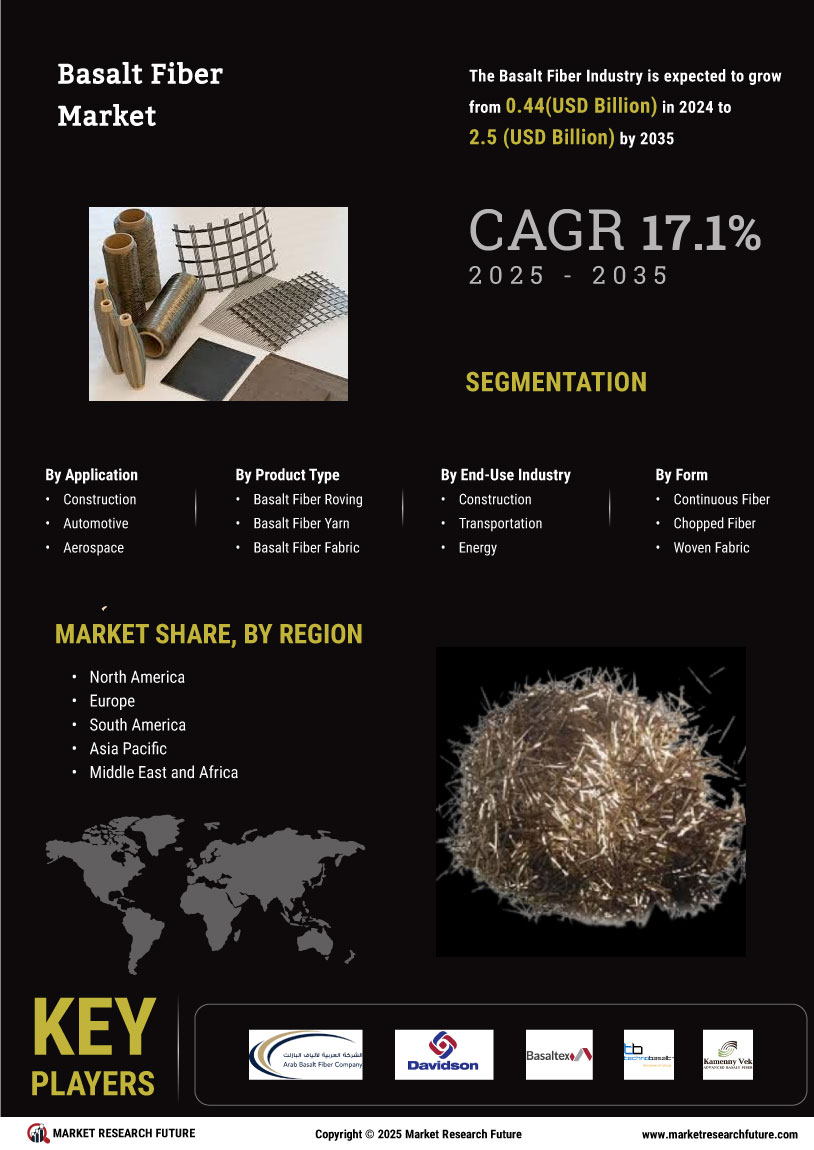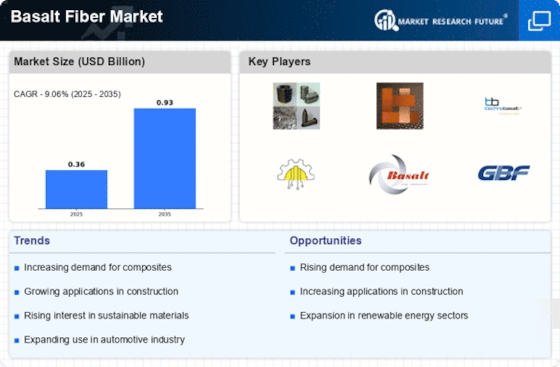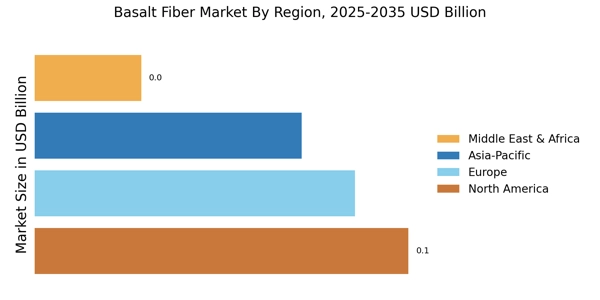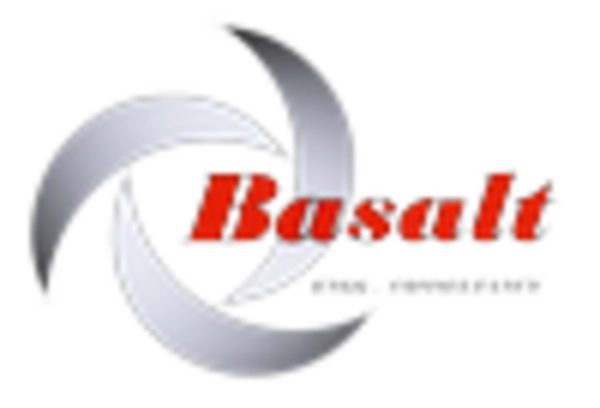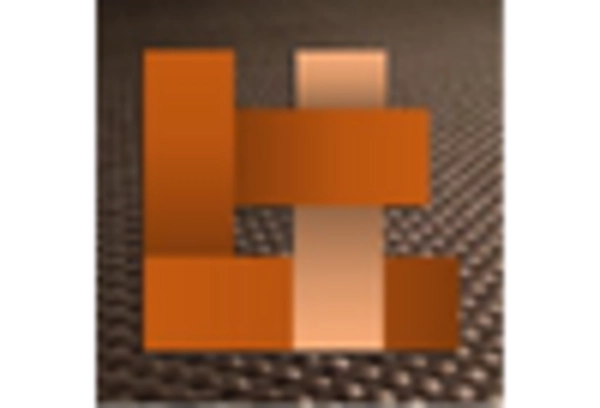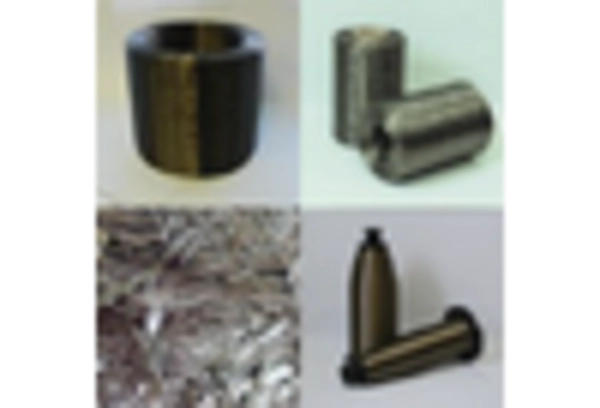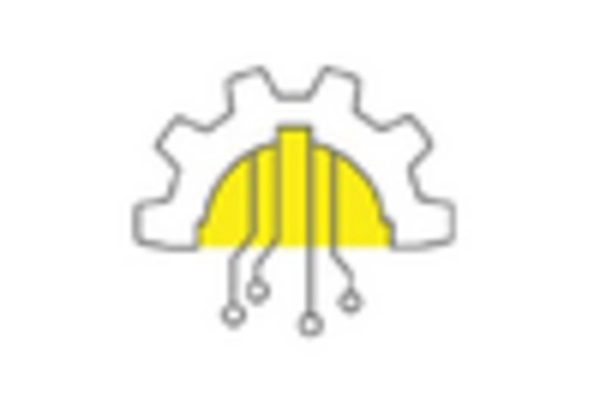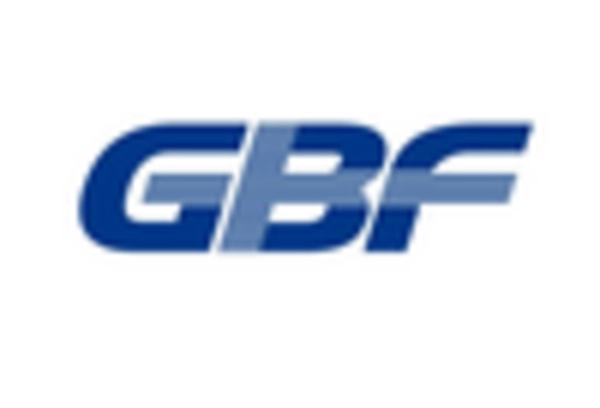Sustainability Focus
The increasing emphasis on sustainability is a pivotal driver for the Basalt Fiber Market. As industries strive to reduce their carbon footprint, basalt fiber emerges as a viable alternative to traditional materials. Its production process is less energy-intensive and does not involve harmful chemicals, making it an eco-friendly choice. The market for basalt fiber is projected to grow at a compound annual growth rate of approximately 10% over the next five years, driven by its applications in construction, automotive, and aerospace sectors. Companies are increasingly adopting basalt fiber to meet regulatory requirements and consumer demand for sustainable products. This trend not only enhances the market's appeal but also positions basalt fiber as a key player in the transition towards greener materials.
Technological Advancements
Technological advancements play a crucial role in propelling the Basalt Fiber Market forward. Innovations in manufacturing processes and product development have led to enhanced performance characteristics of basalt fiber, such as improved tensile strength and thermal resistance. These advancements enable the material to be utilized in a broader range of applications, including high-performance composites and infrastructure reinforcement. The market is witnessing a surge in research and development activities aimed at optimizing basalt fiber properties, which could potentially lead to new applications in various sectors. As a result, the market is expected to expand significantly, with estimates suggesting a market size reaching several hundred million dollars by 2030.
Rising Demand in Automotive Sector
The automotive sector's rising demand for lightweight and durable materials significantly influences the Basalt Fiber Market. As manufacturers seek to improve fuel efficiency and reduce emissions, basalt fiber offers an attractive solution due to its lightweight nature and high strength-to-weight ratio. The automotive industry is expected to witness a shift towards composite materials, with basalt fiber being a frontrunner in this transition. Market analysts predict that the use of basalt fiber in automotive applications could increase by over 15% in the coming years, driven by the need for innovative materials that meet stringent performance standards. This trend not only enhances the market's growth prospects but also positions basalt fiber as a critical component in the future of automotive manufacturing.
Growing Applications in Construction
The construction sector is increasingly adopting basalt fiber, which serves as a key driver for the Basalt Fiber Market. Its unique properties, such as high tensile strength and resistance to corrosion, make it an ideal material for reinforcing concrete structures. The global construction industry is projected to grow at a rate of around 5% annually, further fueling the demand for innovative materials like basalt fiber. Applications range from road construction to the reinforcement of bridges and buildings, where basalt fiber enhances durability and longevity. This growing trend indicates a robust market potential, as more construction companies recognize the benefits of incorporating basalt fiber into their projects.
Increased Investment in Research and Development
Increased investment in research and development is a significant driver for the Basalt Fiber Market. As industries recognize the potential of basalt fiber, funding for innovative projects and studies is on the rise. This investment aims to explore new applications and improve existing manufacturing techniques, which could lead to enhanced product performance and cost-effectiveness. Research initiatives are focusing on the integration of basalt fiber into various composites, which may open new avenues in sectors such as aerospace and marine. The anticipated growth in R&D spending is expected to bolster the market, with projections indicating a potential doubling of market size within the next decade as new applications are developed and commercialized.
